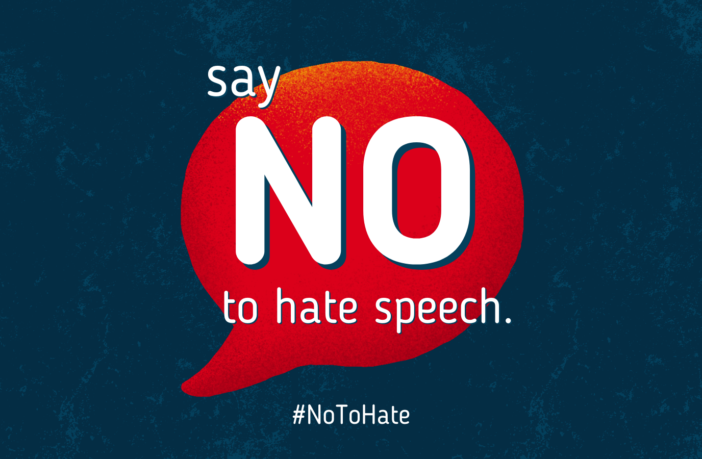You are here: Home / BM / Confronting Campus Turmoil – Navigating the Challenges of Hate Speech and Liberty at American Universities.
Like
Like
Love
Haha
Wow
Sad
Angry
1
(ThyBlackMan.com) The Arab-Israeli conflict has a long, complicated history with strong opinions on both sides of a deeply divided issue. Since the Oct. 7 Hamas attack on Israeli civilians, preliminary data from the Anti-Defamation League recorded incidents of harassment, vandalism, and assault have increased by 388% over the same period last year.
“When conflict erupts in Israel, antisemitic incidents soon follow in the U.S. and globally,” said Jonathan Greenblatt, CEO of the ADL.
Therefore, the sharp rise in anti-Jewish and anti-Muslim incidents at various college campuses should not be a surprise to any university administrator. The question is how do they appropriately respond, and are some things preventable? The Department of Education has opened an extraordinary number of investigations into alleged incidents of hate on college campuses. Harvard, Cornell, and Penn are among several universities and K-12 school districts under investigation. The investigations fall under Title VI of the Civil Rights Act, which says universities and K-12 districts have a responsibility to provide all students with an environment free from discrimination. Schools are at risk of losing federal funding if they fail to comply.
The presidents of Harvard University, the University of Pennsylvania, and the Massachusetts Institute of Technology appeared before the House Committee on Education and the Workforce to testify about their responses to alleged incidents of antisemitism on their campuses. Four days after testifying before Congress, UPenn President Liz Magill resigned following a wave of criticism over her testimony. A bipartisan group of more than 70 members of Congress sent a letter to Penn, Harvard and MIT board members demanding Magill and her counterparts be removed.
One megadonor threatened to cancel a massive gift valued at about $100 million if Magill did not step down. During her testimony, Magill struggled to answer a basic question about whether calls for genocide against Jews would violate UPenn’s code of conduct. She and other university presidents failed to clearly state if calls for the genocide of Jewish people constituted bullying and harassment on respective campuses. Rather, they explained it would depend on the circumstances and conduct. Upholding the right of free speech over the safety of students has become the basis of the uproar from donors, politicians, alumni, business leaders and students.
The idea of America being labeled a “melting pot” extends from the need to have people from various cultures and backgrounds blend and coexist. Without it, we have a nation filled with tension, unrest and bitterness. America has always prided itself on being a defender of liberty and freedom. Liberty is interesting. It is defined as the state of being free within society from oppressive restrictions imposed on one’s life. It can be described as the freedom to live your life how you want without interference from others. Or simply, the power to do as one pleases. We can never automatically assume that once given the freedom to do as he pleases, an individual will do so with a sense of community. Or do so with the morals, personal conduct and conviction to do what is right and decent. Liberty is an individual right, but liberty should never open the door to disrespect others. Or worse, result in physical violence. Schools such as Harvard, UPenn, and MIT are essentially “melting pots” where students from various cultures and backgrounds should be able to coexist in a learning environment safely. Claudine Gay, the president of Harvard University, apologized in an interview with the school’s newspaper after receiving her share of condemnation. “I am sorry, Gay said. “Words matter.” In her statement in the Harvard student newspaper, Gay continued to say, “When words amplify distress and pain, I don’t know how you could feel anything but regret.”
The type of regret Gay is describing is not shared by those who despise having to be politically correct to avoid being disrespectful to others. Political correctness is hated when it is viewed as conforming to what they believe to be a liberal political agenda rather than expressing common decency. Political correctness does not change a hate-filled heart, but it can provide a verbal filter where the impact of a person’s words is minimized and less dangerous and painful. The presidents of the three universities missed a golden opportunity in leadership.
The congressional hearing proved to be the perfect platform where some of those who conduct hate speech could have been regulated down to political correctness by being told the personal consequences they will ultimately face. Unfortunately, Liz Magill ultimately faced the consequences of losing her job after only 20 months. Hopefully, others in similar positions of leadership will not make the same mistake when it comes to protecting students of all backgrounds from discrimination and harassment.
Written by David W. Marshall
Official website; https://davidwmarshallauthor.com/



